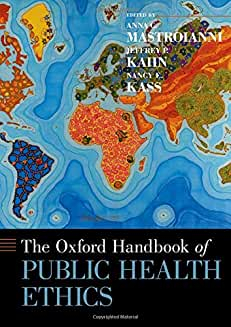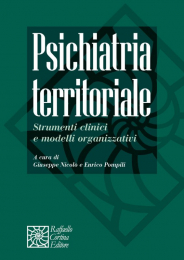Non ci sono recensioni
DA SCONTARE
Natural disasters and cholera outbreaks. Ebola, SARS, and concerns over pandemic flu. HIV and AIDS. E. coli outbreaks from contaminated produce and fast foods. Threats of bioterrorism. Contamination of compounded drugs. Vaccination refusals and outbreaks of preventable diseases. These are just some of the headlines from the last 30-plus years highlighting the essential roles and responsibilities of public health, all of which come with ethical issues and the responsibilities they create.
Public health has achieved extraordinary successes. And yet these successes also bring with them ethical tension. Not all public health successes are equally distributed in the population; extraordinary health disparities between rich and poor still exist. The most successful public health programs sometimes rely on policies that, while improving public health conditions, also limit individual rights. Public health practitioners and policymakers face these and other questions of ethics routinely in their work, and they must navigate their sometimes competing responsibilities to the health of the public with other important societal values such as privacy, autonomy, and prevailing cultural norms.
This Oxford Handbook provides a sweeping and comprehensive review of the current state of public health ethics, addressing these and numerous other questions. Taking account of the wide range of topics under the umbrella of public health and the ethical issues raised by them, this volume is organized into fifteen sections. It begins with two sections that discuss the conceptual foundations, ethical tensions, and ethical frameworks of and for public health and how public health does its work. The thirteen sections that follow examine the application of public health ethics considerations and approaches across a broad range of public health topics. While chapters are organized into topical sections, each chapter is designed to serve as a standalone contribution. The book includes 73 chapters covering many topics from varying perspectives, a recognition of the diversity of the issues that define public health ethics in the U.S. and globally. This Handbook is an authoritative and indispensable guide to the state of public health ethics today.
Public Health Ethics: An Introduction and Overview
PART ONE - FOUNDATIONS
Section One - Conceptual Foundations, Ethical Tensions, and Ethical Frameworks
1. An Overview of Conceptual Foundations, Ethical Tensions, and Ethical Frameworks in Public Health
2. Distinctive Challenges of Public Health Ethics
3. Public Health Programs and Policies: Ethical Justifications
4. Justice and Public Health
5. Human Rights and Public Health Ethics
Section Two - How Public Health Does its Work
6. An Overview of Ethics and How Public Health Does its Work
7. The US Public Health System and Ethics
8. Public Health Interventions: Ethical Implications
9. The Intersection of Law, Ethics, and Public Health in the United States
PART TWO - PUBLIC HEALTH TOPICS
Section Three - Health Systems and Public Health
10. An Overview of the Ethics of Health Systems
11. Health Systems Stewardship, Governance, and Accountability: Issues of Public Health Ethics
12. Global Human Resources for Health: Ethical Aspects
13. Health Systems Research Ethics: Public Health Perspectives
14. The Learning Health Care System and Ethics: Challenges and Opportunities
Section Four - Needs and Issues Related to Particular Populations
15. An Overview of Ethics Issues for Public Health in Particular Populations
16. Aging Populations and Public Health Ethics
17. Children, Adolescents, and Public Health: Ethical Considerations
18. Ethics in Mental Health Care: A Public Health Perspective
19. Persons with Disabilities and Public Health Ethics
20. Sexual and Gender Minorities, Public Health, and Ethics
21. Public Health in the Context of Migration: Ethics Issues Related to Immigrants and Refugees
Section Five - Health Disparities
22. An Overview of Health Disparities in the Context of Public Health Ethics
23. Health Disparities and the Social Determinants of Health: Ethical and Social Justice Issues
24. Racial and Ethnic Health Disparities as a Public Health Ethics Issue
25. Reconciling Two Ethics Goals of Public Health: Reducing Health Disparities and Improving Population Health
26. Measuring Health Inequity: A Public Health Ethics Inquiry
Section Six - Data Collection
27. An Overview of Ethics and Public Health Data Collection
28. Public Health Surveillance: Ethical Considerations
29. Framing Public Health Research Ethics
30. Community-Based Participatory Research: Ethical Considerations
31. Navigating the Ethics of Big Data in Public Health
Section Seven -Sexual and Reproductive Health
32. An Overview of Sexual and Reproductive Health in the Context of Public Health Ethics
33. Sexually Transmitted Infections, Public Health, and Ethics
34. Contraception and Public Health Ethics
35. Abortion and Public Health Ethics
36. Access to Pregnancy-Related Services: Public Health Ethics Issues
Section Eight - Communicable Diseases
37. An Overview of Ethics, Public Health, and Communicable Diseases
38. Immunization and Ethics: Beneficence, Coercion, Public Health, and the State
39. Prevention and Treatment of Tuberculosis in Low- and Middle-Income Countries: Ethical Challenges
40. Control of Mosquito-Borne Illnesses: A Challenge to Public Health Ethics
41. Global HIV/AIDS Prevention and Treatment: Public Health Ethics Considerations
Section Nine - Noncommunicable Diseases
42. An Overview of Ethics, Public Health, and Noncommunicable Diseases
43. Tobacco as a Matter of Public Health: Ethical Issues
44. Alcohol and Other Drugs: Public Health Ethics Issues
45. Global Public Health, Non-Communicable Diseases, and Ethics
46. Treating Cancer as a Public Health Ethics Issue
Section Ten - Food, Water, and Nutrition
47. An Overview of Ethical Issues in Food, Water, and Nutrition in Public Health
48. Water, Justice, and Public Health
49. Malnutrition, Public Health, and Ethics
50. Obesity Prevention and Promotion of Good Nutrition: Public Health Ethics Issues
Section Eleven - Injuries
51. An Overview of the Ethics of Injury in Public Health
52. Preventing Unintentional Injuries: Ethical Considerations in Public Health
53. Violence and Public Health Ethics
Section Twelve - Genetics
54. An Overview of Ethics and Public Health Genetics
55. Eugenics and Public Health: Historical Connections and Ethical Implications
56. Newborn Screening in the United States: Ethical Issues
57. Public Health Genomics, Biobanking, and Ethics
58. Genetic Epidemiology, Infectious Disease, and Public Health Ethics
Section Thirteen - Environmental Health
59. An Overview of Ethics and Environmental Health
60. Industrial Chemicals, Pesticides, Public Health and Ethics
61. Occupational Health and the Built Environment: Ethical Issues
62. Environmental Justice, Ethics, and Public Health
63. Energy, Emissions, and Public Health Ethics
64. Environmental Health Research and Ethics
Section Fourteen - Emergency Preparedness and Response
65. An Overview of Public Health Ethics in Emergency Preparedness and Response
66. Biosecurity and Public Health Ethics Issues Raised by Biological Threats
67. Natural and Industrial Disaster Events, Public Health, and Ethics
68. Pandemic Disease, Public Health, and Ethics
Section Fifteen - Public Health Policy and Politics
69. An Overview of Ethics, Public Health Policy, and Politics
70. Global Development, Global Public Health, and Ethics
71. Responsible Resource Allocation, Public Health Stewardship, and Ethics
72. The Political Economy of Public Health: Challenges for Ethics
73. Incorporating Ethics in Policy Change and Health Reform




